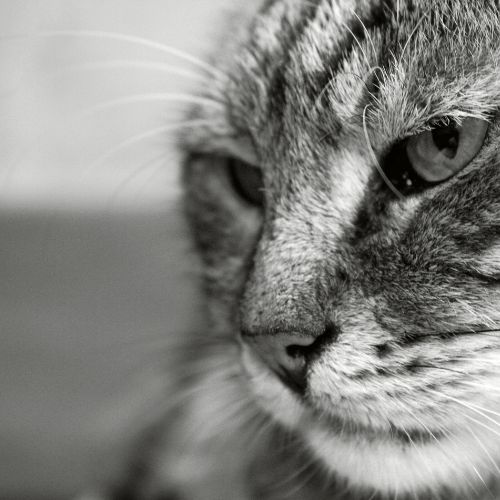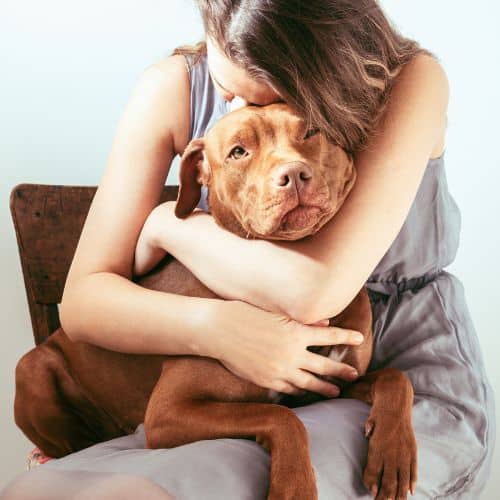How Long Does Pet Grief Last
Losing a beloved pet can be an incredibly difficult experience, and the grief that follows can be overwhelming. If you find yourself wondering how long does pet grief last you are not alone.
In this article, we will explore the emotional journey of pet grief, providing insights into the stages, duration, and factors that can influence the grieving process.
Whether you are a pet owner who has recently lost a companion, a friend or relative supporting a person, or a veterinarian seeking to support your clients, this article aims to provide empathetic and informative guidance to help you navigate through the challenges of pet loss.
Understanding Pet Grief

Pet grief refers to the deep emotional pain and sense of loss experienced when a pet passes away. It is the natural response to the death of a cherished animal companion and is comparable to the grief experienced when losing a human loved one.
The emotional and psychological impact of losing a pet cannot be underestimated. Pets hold a special place in our hearts and lives, and the bond between humans and their pets can be incredibly strong.
When that bond is broken through the loss of a pet, it can result in a wide range of emotions such as sadness, grief, anger, guilt, and even depression.
For many pet owners, their pets are not just animals, but beloved family members. They provide unconditional love, companionship, and support, and their absence can leave a significant void in their owner’s life.
The loss of a pet can also lead to a sense of loneliness and isolation, as the daily routines and activities that revolved around the pet are suddenly gone.
How Long Does Pet Grief Last?

When it comes to determining how long pet grief lasts, it is important to remember that everyone’s experience is unique. There is no set timeline for grieving the loss of a pet, and it is a personal journey that can vary greatly from person to person.
However, experts have identified some general timelines that pet owners may go through during the grieving process.
The initial stage is usually marked by shock and denial, where the pet owner may find it hard to accept the reality of the loss. This is often followed by a period of intense sadness and sorrow, where the full weight of the loss is felt.
Over time, the intensity of grief may start to lessen, and pet owners may begin to accept the loss and find ways to remember and honor their pet.
This may include creating rituals or memorials, sharing stories and memories, or finding comfort in the support of others who have experienced similar losses.
It is important to note that these timelines are not definitive and can vary depending on various factors such as the individual’s coping mechanisms, the strength of the bond with the pet, and the circumstances of the loss.
Some individuals may find that their grief lasts for a shorter period of time, while others may experience a more prolonged grieving process.
Factors That Affect the Duration of Pet Grief

While grief is a personal experience, there are certain factors that can influence the duration of pet grief. Understanding these factors can provide insight into why some individuals may grieve for longer periods of time.
Age of the Pet
The age of the pet at the time of their passing can have an impact on the duration of grief. If the pet lived a long and fulfilling life, pet owners may find it easier to come to terms with their loss.
However, if the pet passed away at a young age or due to unforeseen circumstances, the grief may be more intense and prolonged.
I once made the decision to euthanize a 3-day-old pug puppy with a cleft palate. It was not feeding well and would have needed tube feeding for the first 6 months of its life. Once it was old enough and strong enough, multiple surgeries would have been needed to repair the cleft.
The vet and I decided it was the right thing to do. But it was still a hard choice and one that came with immense grief. The grief lasted a week or so, and once I was less sleep-deprived and emotional I could reflect on the decision, and move on.
Circumstances of Loss
The circumstances surrounding the loss of a pet can also affect the duration of grief. If the pet passes away suddenly or traumatically, it can be more difficult for pet owners to process their emotions and move through the grieving process.
On the other hand, if the loss was expected due to an illness or old age, pet owners may have had more time to prepare emotionally, which can result in a shorter grieving period.
Emotional Attachment
The depth of emotional attachment between a pet owner and their pet can greatly affect how long pet grief lasts. If the bond with the pet was particularly strong and the pet played a significant role in the owner’s daily life, the loss can be more devastating and the grieving process may be more prolonged.
It is important to recognize that these factors are not definitive and that every person’s grieving process will be unique. Some individuals may find that their grief lasts longer due to these factors, while others may experience a shorter grieving period despite similar circumstances.
Coping Mechanisms

Coping with the loss of a pet can be a difficult and challenging process, but there are strategies and coping mechanisms that can help individuals move through their grief.
It is important to remember that everyone copes with loss differently, and what works for one person may not work for another. Here are some actionable advice on how to cope with pet grief:
Allow yourself to grieve
It is important to give yourself permission to grieve and process your emotions. Allow yourself to feel sad, cry, and express your grief in a way that feels right for you. It is a natural response to loss and suppressing your emotions can hinder the healing process.
Create a memorial
Creating a memorial for your pet can be a healing and comforting way to remember and honor them. This can be as simple as framing a favorite photo or creating a collage of memories. You can also consider planting a tree or creating a garden in their memory.

Seek support
Reach out to others who have experienced pet loss or join support groups for pet grieving. Sharing your feelings with others who understand can provide validation and emotional support.
Online forums or local community groups can be great resources for finding support during this difficult time.
Practice self-care
Taking care of yourself is crucial during the grieving process. Make sure to eat well, get enough sleep, and engage in activities that bring you joy and comfort.
Exercise, spend time in nature, or practice relaxation techniques such as meditation or deep breathing exercises.
Consider counseling or therapy
If you find that your grief is overwhelming and affecting your daily life, seeking professional help may be beneficial. A grief counselor or therapist can provide guidance, support, and coping strategies tailored to your specific needs.
It is important to remember that healing takes time and that there is no right or wrong way to grieve. Each person’s journey is unique, and finding what works for you is key to moving through the grieving process.
When to Seek Professional Help

While grief is a natural and normal response to loss, there may be instances when pet grief starts to affect one’s mental health.
It is important to recognize the signs that indicate it may be time to seek professional help. Some potential signs include:
- Intense and prolonged feelings of sadness or hopelessness
- Difficulty carrying out daily routines and responsibilities
- Isolating oneself from friends and family
- Persistent feelings of guilt or self-blame
- Loss of interest in activities once enjoyed
- Changes in sleep patterns or appetite
- Thoughts of self-harm or suicide
If you are experiencing any of these symptoms or if you are finding it difficult to function in your daily life, seek professional help.
Grief counseling or therapy can provide the support and guidance needed to navigate through the complexities of pet grief and ensure your mental well-being.
Start by reaching out to your primary care physician or local mental health centers to get recommendations for grief counselors or therapists specializing in pet loss.
Conclusion
Losing a pet is a deeply painful experience, and the grief that follows can be overwhelming. Understanding pet grief and the factors that can affect its duration helps to navigate through the grieving process.
While grief is a personal journey and timelines can vary, it is important to remember that healing is possible, and there are coping mechanisms and resources available to support you.
Allow yourself to grieve and process your emotions, create memorials to honor your pet, and seek support from others who have experienced pet loss.
Remember to practice self-care and seek professional help if needed. By acknowledging your grief and taking steps to heal, you can honor the memory of your beloved pet and find comfort in the love and joy they brought into your life.







